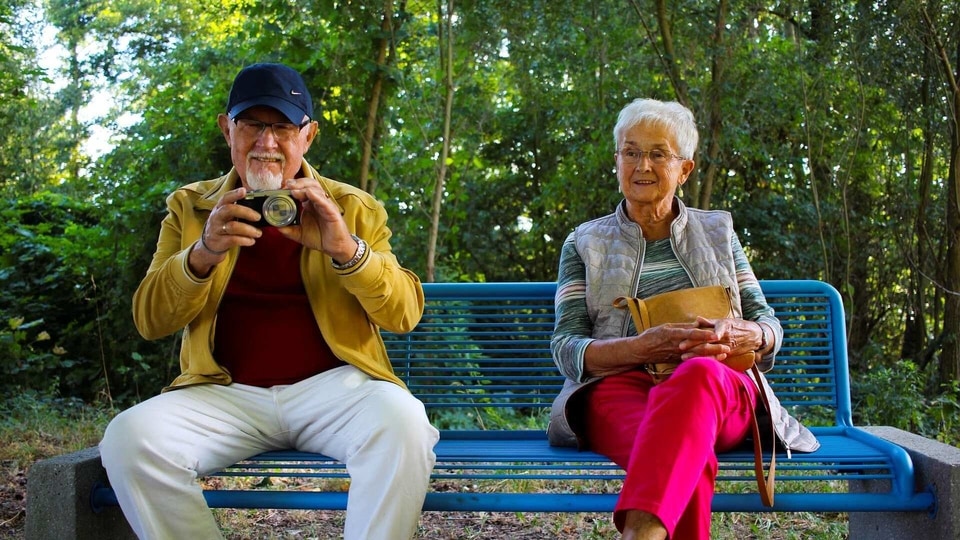Senior citizens are not averse to technology, it's time to teach them to use it for security
The pandemic and the subsequent lockdown has shown us that senior citizens can and have learned to take in modern technology and use it daily. It's time to teach them something more.


In turning our lives upside down, the pandemic has spared no one. While for the young and not-so-young, not being able to socialise or step out for dining etc. on account of social distancing norms is irksome; for the senior citizens and the elderly, the same norms are stifling.
In fact, many senior citizens who live alone found the early lockdowns nothing short of an obstacle course for survival. Despite having abundant financial resources, they were forced to reassess their lifestyle choices. With everything coming to halt and struggling for basics, managing without house help and fretting about handling any medical emergencies and overall security issues took a heavy toll on them.
In fact, a greater proportion of senior citizens are living alone now more than ever. Working on the sample size of 10,000 elderly people, Delhi-based NGO Agewell Foundation found that almost every fourth elderly person or 23.44% of the respondents were living alone in India. Almost every second elderly (48.88%) was living with their respective spouse only. The percentage of elderly people that were living alone in urban areas were 25.3% in comparison to 21.38% in rural areas. Most of them were dependent on their children or house help for their basic needs and security.
Unlike several countries in the West, the safety of senior citizens in our country has always been a challenge. They are particularly vulnerable to crimes and frauds. In 2019, the cases of crime against senior citizens rose by 88%. Out of 20,532 IPC crimes under crime against senior citizens, maximum cases were registered under cheating (1,867 cases) followed by robbery (1,294 cases), murder (1,053 cases) and grievous hurt (949 cases).
If there is one positive takeaway from the pandemic, it is how even the elderly have shunned their hesitations or fear of using modern smartphones and apps and started using chat or messaging apps to keep in touch with their children or other family members – even friends and relatives.
Seventy or 80 year olds have finally figured how to connect video calls via WhatsApp, FaceTime or Google Duo – and they are loving it. Some have even started using apps for ordering groceries or do basic digital payments.
While the senior citizens have made genuine efforts to learn new skills as they adjust to the new normal, it now behooves their younger family members, friends or caretakers to educate and guide them on taking advantage of modern technology to further enhance their own safety and security.
Note that their family members are busy juggling their own hectic professional and personal lives and are often hard-pressed to spend much time caring for their parents or grandparents. At the same time, they also do not want to risk the safety and well-being of their parents and are often pushing them to hire someone who can support them with daily chores: a cook, house-help, a caretaker or a driver.
Now that the life is returning back to normal, the elderly who live alone are finally consenting to again hiring support to get on with their daily lives. While in the old days it was sufficient for them to hire a new person based on their experience and instinct, today they can rely on modern technology to decide whether a potential hire, or even a potential tenant is trustworthy or not.
WhatsApp-based verification services available today allow individuals to quickly get all necessary information about an individual, whether a caretaker, domestic help, security guard or anyone else in order to make well-informed decisions on whether they are trustworthy. Designed specifically for non-technical users, such tools follow a simple step-by-step guided procedure that can verify an individual's identity and criminal records by just uploading the concerned person's identity proof, by using an Aadhaar card or a Driving License.
In many ways, WhatsApp-based verification services have democratised the background verification process that large employers have always followed while hiring new employees.
Until now, this process was tedious, lengthy and extremely expensive. With the advancement of technology and deployment of artificial intelligence (AI) and machine learning in this domain, firms have moved away from their dependence on manual and physical checks to validate identity or criminal records. In other words, technology has made the process cheaper, simpler and faster – and accessible directly via a popular app like WhatsApp.
In conclusion, the pandemic has made all of us realise that senior citizens are not averse to using technology as long as it brings them clear benefits – whether it is video calling their grandchildren or family members or ordering groceries and making bank transactions via a smartphone. At the same time, their family members are also keen to provide them with an environment where they feel safe, secure and cared for. Here again, technology can play a meaningful role in building trust and even provide the senior citizens with the confidence to hire and work with strangers without undue worries.
This article has been written by Varun Mirchandani, Founder and CEO, HelloVerify.
Catch all the Latest Tech News, Mobile News, Laptop News, Gaming news, Wearables News , How To News, also keep up with us on Whatsapp channel,Twitter, Facebook, Google News, and Instagram. For our latest videos, subscribe to our YouTube channel.


























